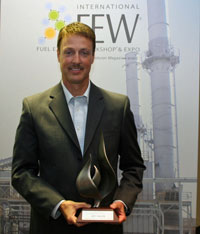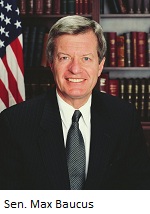Reports late Thursday indicated that a decision on increasing the ethanol blend rate in gasoline could be delayed into the fall.
Reuters is reporting that Environmental Protection Agency says the Department of Energy (DOE) has to complete more testing before they can rule on increasing the amount of ethanol allowed in regular gasoline above the current 10%, and that it will be September or later before DOE completes testing on vehicles 2007 model year or newer. “While results from the tests conducted to-date look good, EPA will not make a final decision until DOE completes its current comprehensive testing of the newer vehicles,” Reuters quotes EPA as saying.
 The report brought a swift reaction from the ethanol industry. “EPA is dropping the ball, and for no scientifically justified reason,” said Renewable Fuels Association President and CEO Bob Dinneen. “President Obama this week rallied the nation to an Apollo-like program to end our dependence on oil. By pursuing this path, EPA is failing to answer the President’s charge.”
The report brought a swift reaction from the ethanol industry. “EPA is dropping the ball, and for no scientifically justified reason,” said Renewable Fuels Association President and CEO Bob Dinneen. “President Obama this week rallied the nation to an Apollo-like program to end our dependence on oil. By pursuing this path, EPA is failing to answer the President’s charge.”
Growth Energy, which filed the Green Jobs Waiver to increase the ethanol blend rate to 15 percent in March of 2009, responded with a direct letter to President Obama pointing out that a decision on the waiver had already been delayed by EPA well past the 270 days required under law.
 “As you would expect, we find this further delay unacceptable,” writes Growth Energy CEO Tom Buis. “We urge you to direct the federal agencies involved in this waiver to expedite the testing process, add extra staff, additional shifts, or whatever other steps necessary to accelerate the completion of the testing. Again, the waiver decision should have been made in December 2009; when that deadline was not met, we were promised a decision in mid June of this year. Now we are again being told to wait for testing that we believe was unnecessary in the first place to make a decision.”
“As you would expect, we find this further delay unacceptable,” writes Growth Energy CEO Tom Buis. “We urge you to direct the federal agencies involved in this waiver to expedite the testing process, add extra staff, additional shifts, or whatever other steps necessary to accelerate the completion of the testing. Again, the waiver decision should have been made in December 2009; when that deadline was not met, we were promised a decision in mid June of this year. Now we are again being told to wait for testing that we believe was unnecessary in the first place to make a decision.”
Meanwhile, Dow Jones reports that Archer Daniels Midland has reportedly received an answer from EPA on a request made last week seeking approval of ethanol-gasoline blends containing up to E12 for all cars. EPA assistant administrator Gina McCarthy wrote that they will give “careful attention” to ADM’s request, but that test data would be needed for such approval and they are “not aware of any test data using 12% ethanol blends.”
According to RFA, existing oxygenate stacking rules already allow for the addition of up to 2 percent MTBE on top of currently allowed 10 percent ethanol blends and since ethanol and MTBE are both oxygenates, that additional 2 percent volume could be ethanol since a vehicle engine would not recognize if the oxygen content was from one fuel or two.
 The Ag Department is promising that canola-based biodiesel won’t be left behind as provisions of the 2008 Farm Bill are implemented.
The Ag Department is promising that canola-based biodiesel won’t be left behind as provisions of the 2008 Farm Bill are implemented.


 The report brought a swift reaction from the ethanol industry. “EPA is dropping the ball, and for no scientifically justified reason,” said
The report brought a swift reaction from the ethanol industry. “EPA is dropping the ball, and for no scientifically justified reason,” said  “As you would expect, we find this further delay unacceptable,” writes Growth Energy CEO Tom Buis. “We urge you to direct the federal agencies involved in this waiver to expedite the testing process, add extra staff, additional shifts, or whatever other steps necessary to accelerate the completion of the testing. Again, the waiver decision should have been made in December 2009; when that deadline was not met, we were promised a decision in mid June of this year. Now we are again being told to wait for testing that we believe was unnecessary in the first place to make a decision.”
“As you would expect, we find this further delay unacceptable,” writes Growth Energy CEO Tom Buis. “We urge you to direct the federal agencies involved in this waiver to expedite the testing process, add extra staff, additional shifts, or whatever other steps necessary to accelerate the completion of the testing. Again, the waiver decision should have been made in December 2009; when that deadline was not met, we were promised a decision in mid June of this year. Now we are again being told to wait for testing that we believe was unnecessary in the first place to make a decision.”
 Two current ethanol industry leaders and two potential leaders of the future received recognition at the 2010 Fuel Ethanol Workshop in St. Louis this week.
Two current ethanol industry leaders and two potential leaders of the future received recognition at the 2010 Fuel Ethanol Workshop in St. Louis this week. SunBelt Biofuels and Unifi Inc. have formed a joint venture called
SunBelt Biofuels and Unifi Inc. have formed a joint venture called  One of those was
One of those was 

 In his
In his